Case 15
- The Right Book Publications
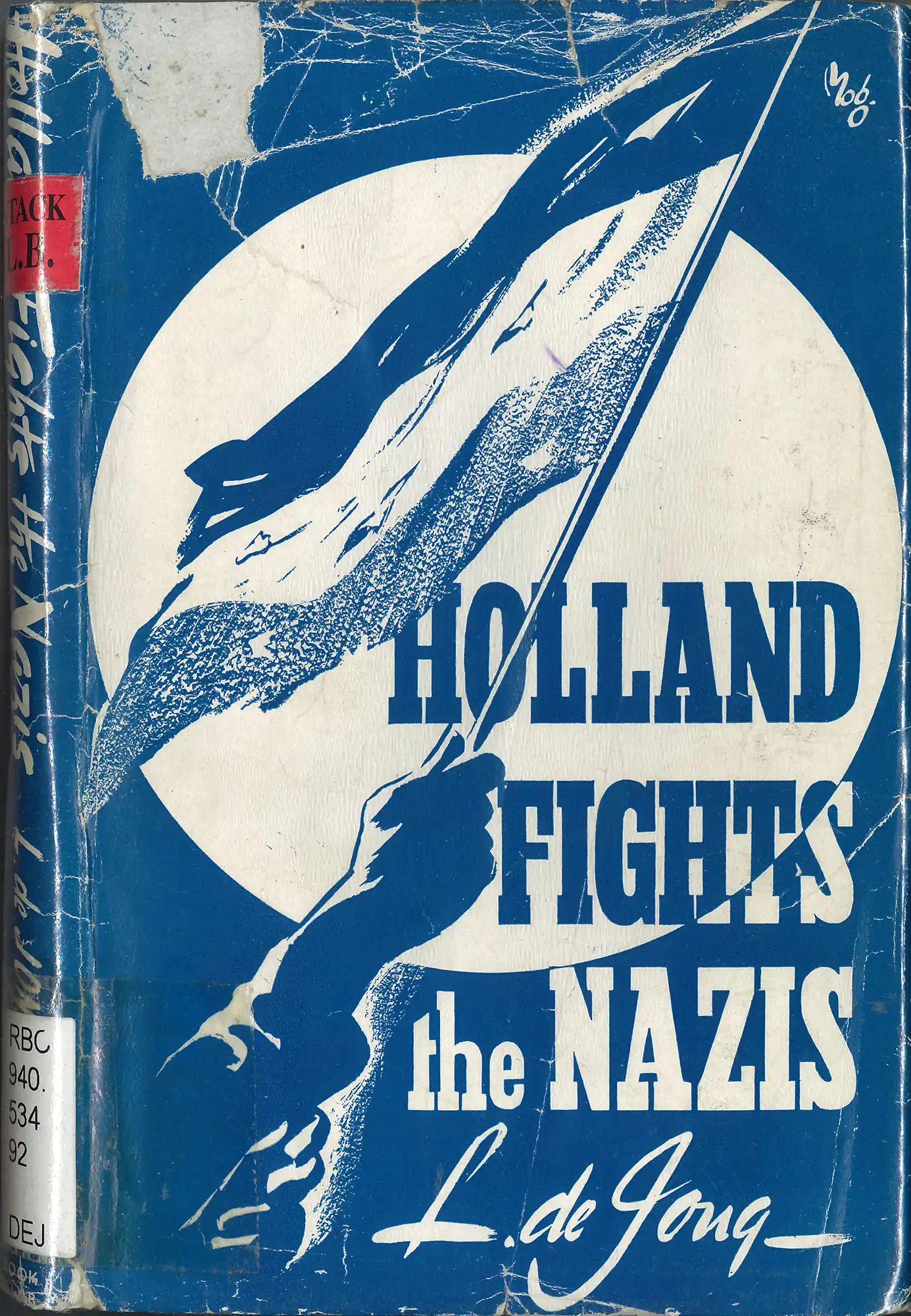
L. De Jong, Holland Fights the Nazis. (1941). RBC 940.53492 DEJ
Foyle realised that both Spain and Russia were good copy for the RBC. They published works such as William Foss and Cecil Gerahty’s Spanish Arena (December 1938), an account of the Spanish Civil War (December 1938), Eugene Lyons’s Assignment in Utopia (August 1938), a critique of the Soviet Union, W. G. Krivitsky’s I Was Stalin’s Agent (1940), and John Fischer, The Scared Men in the Kremlin (1948). Another theatre of war interest was Holland. The historian Louis de Jong (1914-2005) wrote an account of the Dutch and their resistance movements against Nazi Germany, much based on a strong desire to ‘remain ourselves’. Again, the aim for Foyle was to deliver the truth to RBC members.
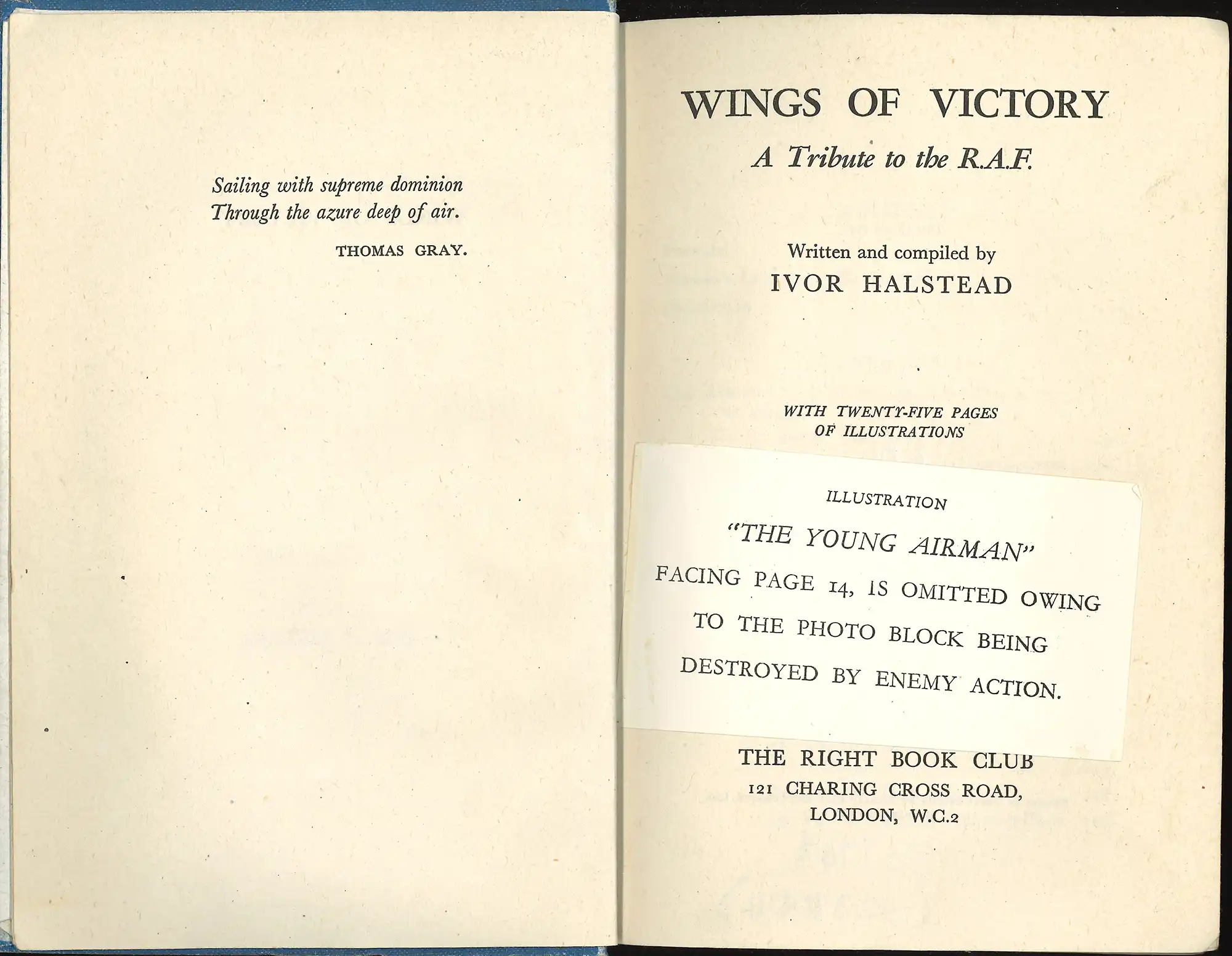
Ivor Halstead, Wings of Victory: a tribute to the R.A.F. (1941). RBC 940.53 HAL
Physical restrictions, paper shortages, a shortage of workers due to conscription, and controls on the content of publications due to the censorship of the information were just some of the problems in the publishing industry during the Second World War. On 29 December 1940 disaster struck in London: 27 publishers’ premises were damaged and 5 million books destroyed by German bombings (the Blitz). Gollancz was hit hard, losing a large part of his stock. Despite all this, publishing, and the demand for books (and the reading of them) continued. The scarce tipped-in slip in Halstead’s Wings of Victory is a reminder of what occurred, representing that very English ‘we must carry on’ attitude.
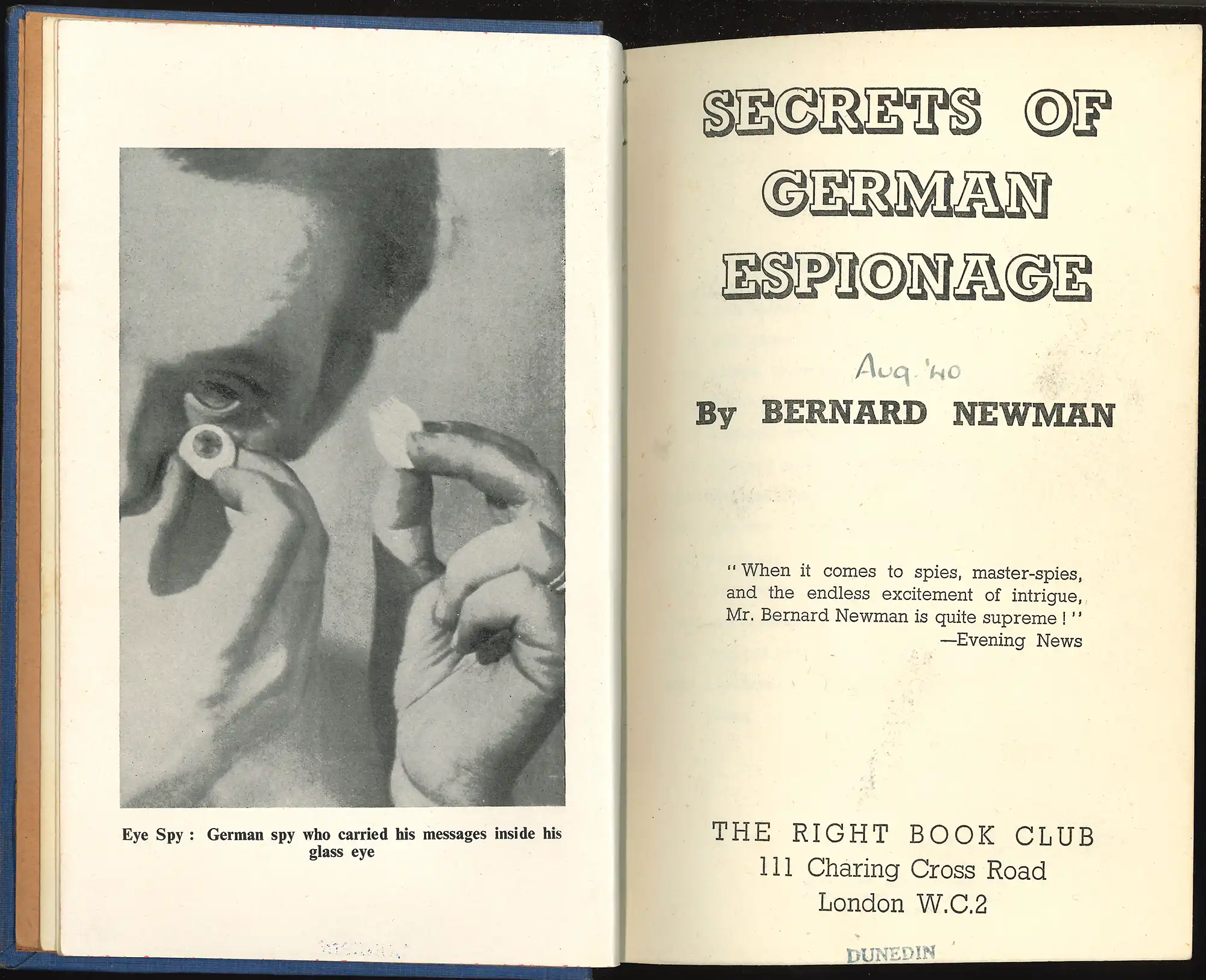
Bernard Newman, The Secrets of German Espionage. (1940). RBC 327.120943 NEW
Writers who want to be published can be a promiscuous lot. Bernard Newman (1897-1968) wrote some 138 books, including novels, non-fiction, short stories, and science fiction. Twenty-five of his titles were published by Gollancz, who no doubt regarded Newman, an authority on spies and espionage, as a writer who could produce ‘best-sellers’. Christina Foyle knew this too. After Robert Hale published Newman’s Secrets of German Espionage in 1940, she produced her Right Book Club edition with the ‘Eye Spy’ frontispiece, one of 11 published that year. The RBC published two other Newman titles – the earlier Danger spots of Europe (1939) and The New Europe (1944).
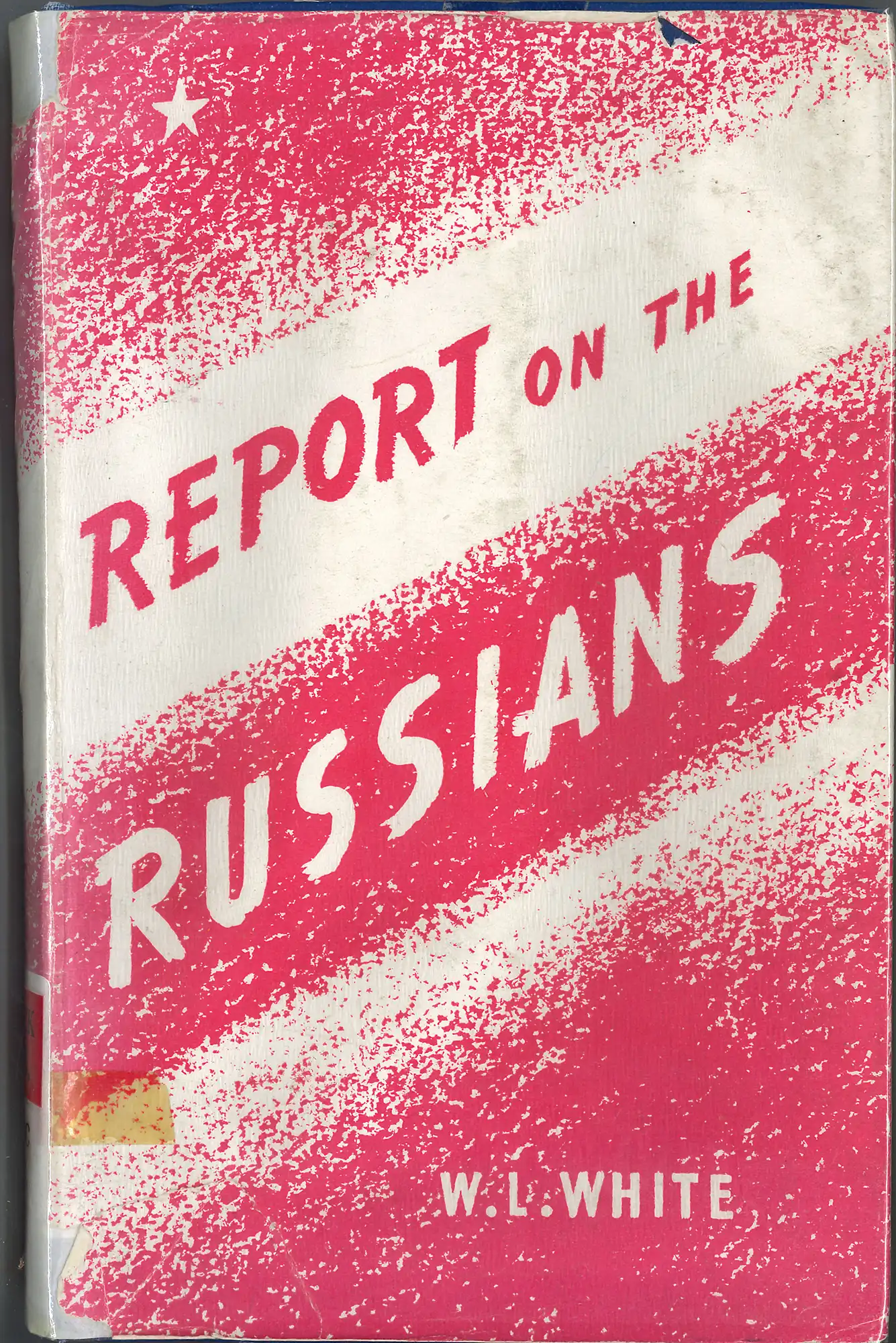
W. L. White, Report on the Russians. London: Right Book Club, 1946. RBC 940.540947 WHI
The American journalist William L. White (1900-1973) spent six weeks in Russia during the summer of 1944 and wrote his Report, which was first published by Harcourt, Brace & Co in 1945. Although revealing facts about the country not known by outsiders, he was criticised for portraying a bias against Russians and distorting the picture of the country. Reprinted in 1946 by RBC, they added the promotional puff: ‘Everyone should read it’. The English novelist A G. MacDonell made the cynical remark: ‘I had no idea that there were twenty thousand members of the Right in politics who could read…Please rest assured that I look forward eagerly to the demise of the Right Book Club’.
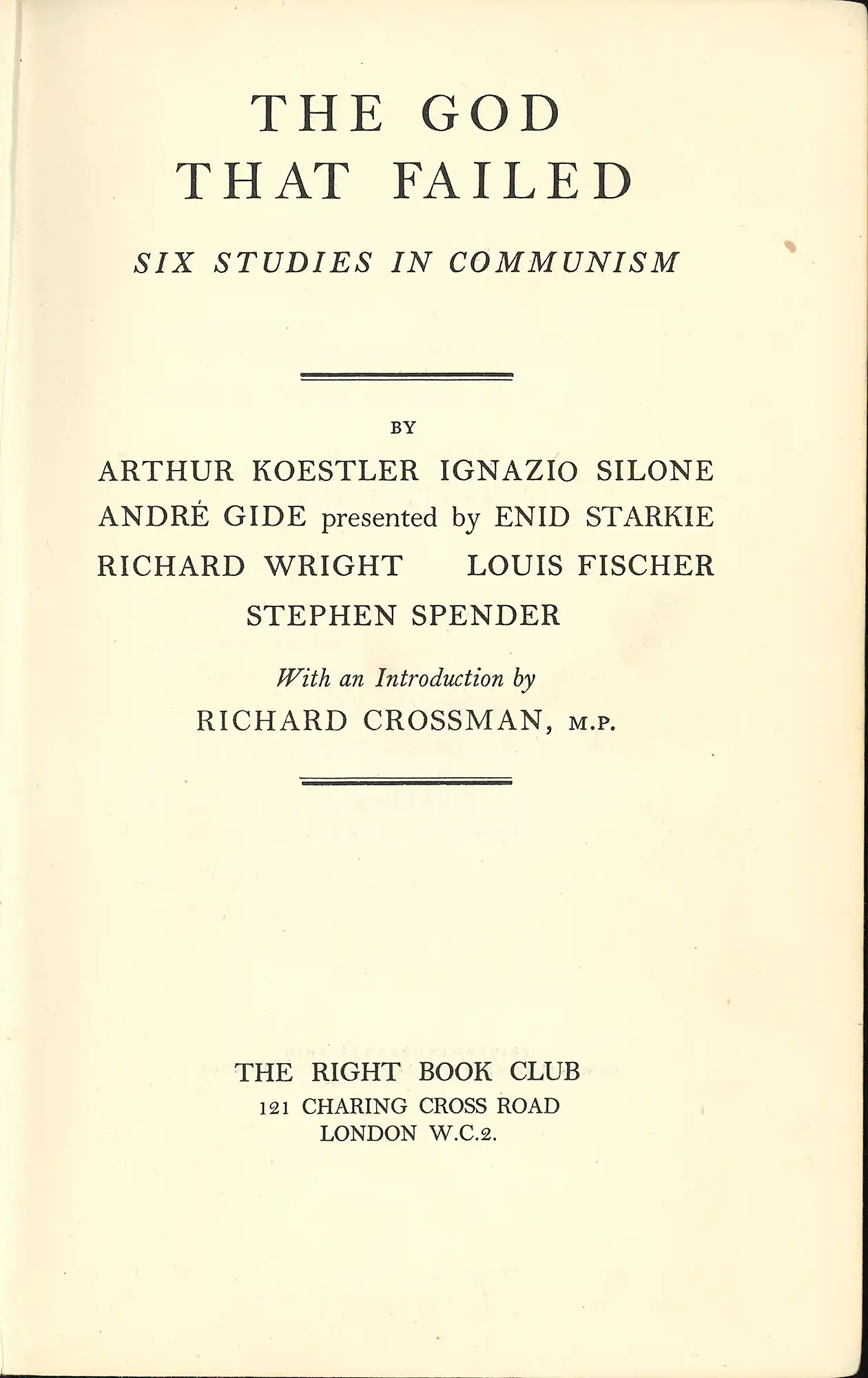
Arthur Koestler, The God that failed: six studies in communism. (1949). RBC 335.4 CRO
Like Gollancz, Christina Foyle aimed for increased sales. She too formed various series to attract the reading public: The Religious Book Club, the Scientific Book Club, the Travel Book Club, and the Socialist Book Club, which was established in February 1938 by Ronald Batty, her husband. Gollancz derisively dubbed it the ‘Batty Book Club’; it did not last, folding a few months later. Another thing that did not last, at least for some, was the allure of Communism. Arthur Koestler edited these essays by Gide, Spender, and Richard Wright of their journeys into Communism and back, all full of disillusionment with and abandonment of the system.
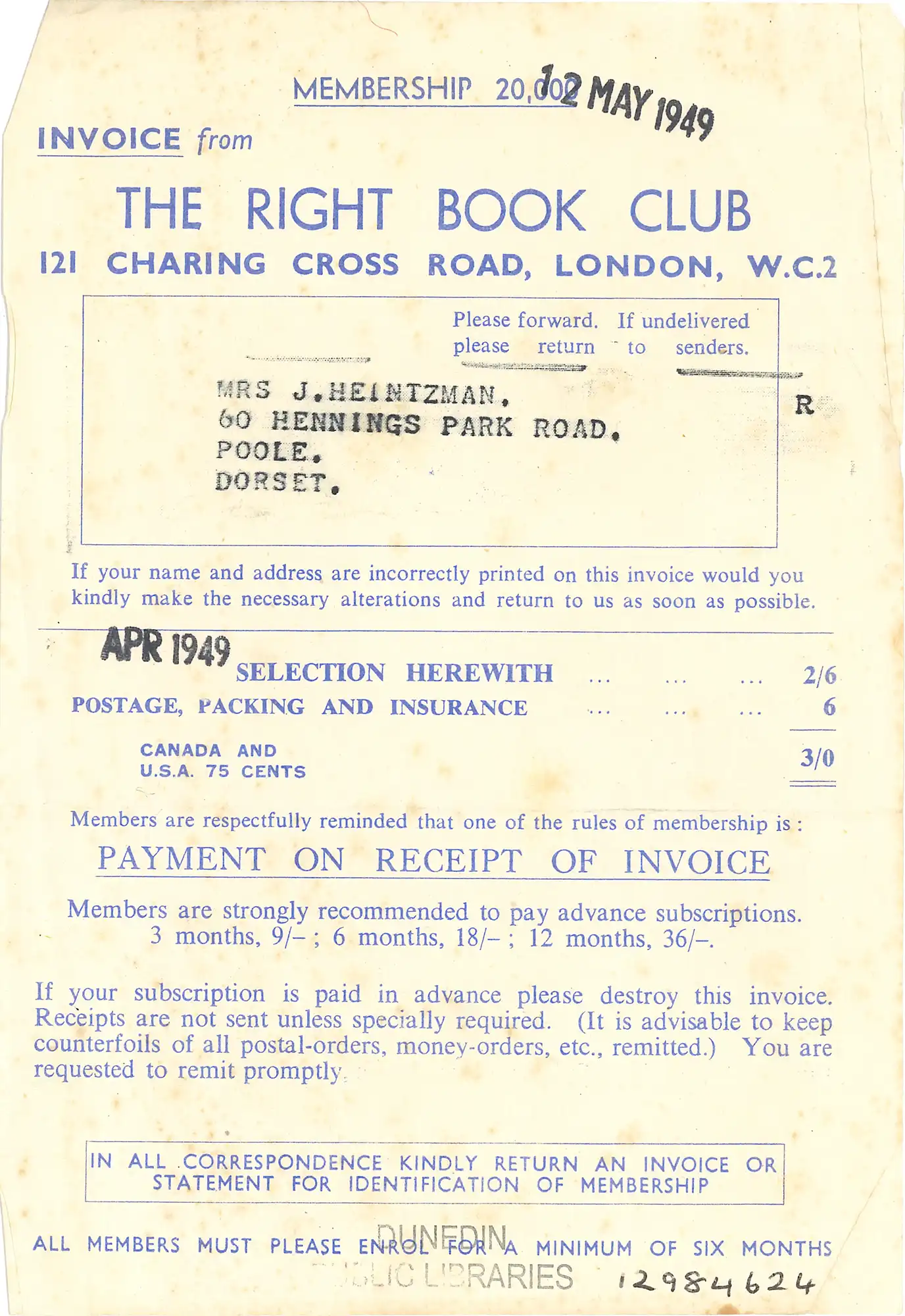
Invoice from The Right Book Club, April 1949
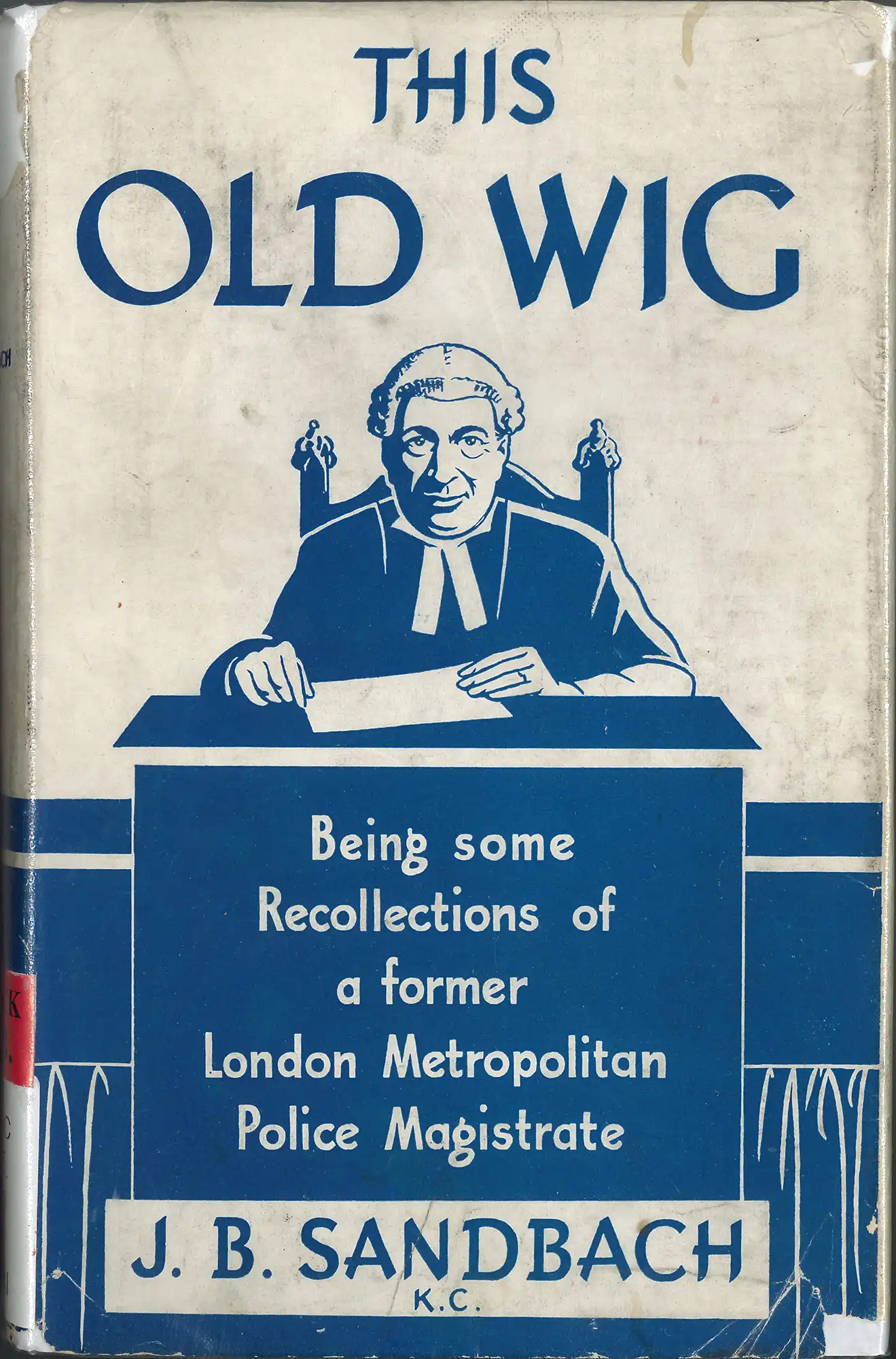
John Brown Sandbach, This old wig: being some recollections of the life of a former London Metropolitan Police Magistrate. (1950). RBC 345.42014 SAN
Christina Foyle must have been very pleased to know that the RBC outlived her rival, the LBC, by about two years, stopping publication in 1951. Book clubs had proliferated since their inception. Indeed, by 1938, there were over 20 book clubs in Britain, for example, the Labour Book Service, the Peace Book Club, the Liberal Book Club, and so on. This was one important part of the legacy of the RBC and the LBC. Heritage Collections does not hold the last two titles published by the RBC: A. J. P. Taylor’s From Napoleon to Stalin: Comments on European History (1950) and Kenneth Walker’s A Doctor Digresses (c. 1951). One of the near last is John Brown Sandbach’s This old wig: being some recollections of the life of a former London Metropolitan Police Magistrate. (1950), a very English title.

John Brown Sandbach, This old wig: being some recollections of the life of a former London Metropolitan Police Magistrate. (1950). RBC 345.42014 SAN
Open image in new window






